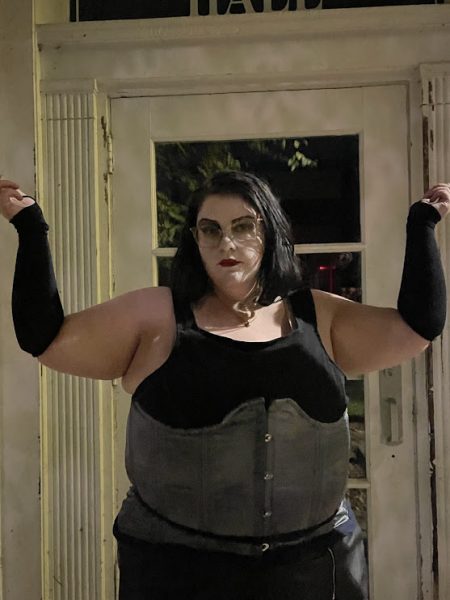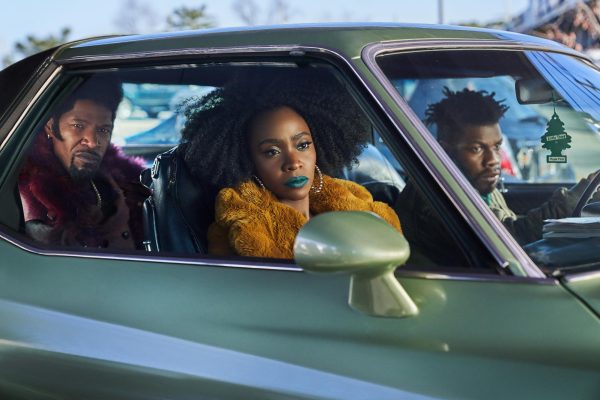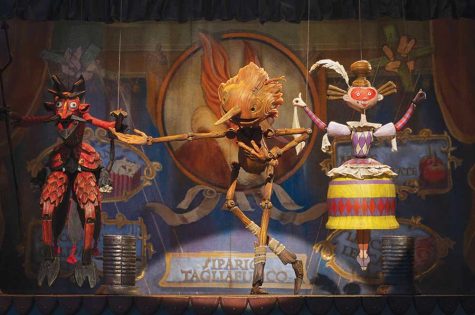“About Time” Marvel learns about passion
It’s either this or jokes about a metrosexual with a big hammer.
Richard Curtis is awfully undervalued. He’s the English chap who wrote “Four Weddings and a Funeral,” “Notting Hill,” “Bridget Jones’s Diary,” and wrote and directed “Love Actually.” He is the master of the rom-com.
He absolutely believes in what he writes, and it shows. In interviews, he has superbly defended optimism, the abundance of which has convinced critics that his films are jokes.
Well, I’m not laughing, except at his actual jokes, which are outrageous in their subtle absurdity, and one of the reasons his films are so beloved (Hugh Grant’s mastery in delivering those lines, plus his looks, is the secret to his romantic appeal. Remember his awkwardness when he goes to visit Julia Roberts in “Notting Hill” and unknowingly wanders into a press conference, then, spur of the moment, declares that he’s a journalist from “Horse & Hound,” only to find out that he’s interviewing Roberts regarding her role in a new space movie?).
Curtis hasn’t done a romantic film since “Love Actually,” which came out 10 years before his new film, “About Time,” which he says is the last film he’ll direct. That’s not surprising, because “About Time” is just that—it’s Richard Curtis’s mission statement.
It’s been advertised as a romance, and that’s a part of it, but the truth is the f—–g thing’s so bloody organic and beautifully written that they didn’t have a friggin’ clue how to market it.
I don’t think I’ve ever seen a film where I never once predicted what would happen next, until “About Time.”
The premise is that lovelorn English country boy Domhnall Gleeson is told by his father, on his 21st birthday, that the men in their family are time-travellers. All they have to do is find a dark space, ideally a closet, although a toilet stall will do, clench their fists, close their eyes, and imagine a moment in their past, and they’re there. They can’t go to the future and they’ve yet to see the notorious Butterfly Effect.
Gleeson, of course, decides to use this power to help him get a girlfriend.
I don’t want to say another thing about the plot. This film’s being marketed as a romance, and it’s certainly romantic, but it’s more of a father-son story than a romance.
I don’t have a romance, fortunately: no one was there to see the tears streaming down my cheeks as the movie ended. Because I do, however, have a father, and I am a son, and in full possession of all possible Daddy Issues, “About Time” hit me like a bullet. Richard Curtis shoved a grenade down my throat, and it exploded in my heart.
It is, literally, about time: it’s about how to live when we know that our story ends in tragedy, in death—how to live with that villain foreshadowed and attacking again and again through our lives, until, finally, inevitably, it destroys us.
Curtis expresses his take through filmmaking as subtle and empassioned as his writing, mostly handheld, desaturated, and clean.
His screenplay, which takes life and death seriously without ever becoming deathly serious or any less lively, which balances laughs, romance, fun, and death, should be preserved and treasured. I’ll see to this, as soon as I get my hands on it, by printing it out and locking it up myself. It’s the least I can do.
Meanwhile, in the Hollywood Arena, “Thor: The Dark World” arrives with as much thunder as a popcorn fart.
That’s being a little hard on it; it did win me over by the end. But there’s no excuse for a movie to look like TV, especially after “Man of Steel.”
The first “Thor” was directed by Kenneth Branagh, who was best known for his majestic Shakespeare adaptations. Branagh adapted “Thor” with that Shakespearean majesty, and it made the film.
Marvel Studios hath sacked Branagh for the sequel, however, and replaced him with Alan Taylor, who has directed episodes of “Game of Thrones.”
Thus the majesty is replaced by Tolkien-esque leanings, complete with elvish villain (played by Christopher Eccleston). It looks like a TV episode.
What the f—k are all these people who aren’t in love with cinema doing behind cameras? What angles were composed with any feeling besides the confusing effects sequences? (The whole movie’s confusing. Overheard as we left the theater: “I liked it. It was really confusing, though.” “Well, they gotta make a sequel.”)
What saves the movie is the fact that, bizarrely, it’s a comedy: it’s non-stop jokes from start to finish. When Asgardian prison guards are battling escaped prisoners, it suddenly cuts to one of the guards saying, “It’s as though they resent us for imprisoning them!” Thor, in full regalia, steps into an English apartment, and it cuts to a shot of him politely and carefully hanging his hammer on the coat rack by the door. What compelled them to build the movie on laughs? I wonder if the script wasn’t so lacking that they hired another writer to throw in as many jokes as possible. (Whoever that writer was, they got the job done.)
The cast makes it work. Chris Hemsworth is still charming, Tom Hiddleston is still pleasurable (though not as much so as he is in the hands of Joss Whedon). Kat Dennings is funny: they toned down her sarcasm dial and pressed the comic relief button. The only cast member who isn’t exciting is, of all people, Natalie Portman, who is so underwritten it’s as if they looked up archetypical exchanges between Swooning, Wronged Love Interest and Savior and plopped them in. The only reason Thor’s attraction to Portman’s character makes any sense is because she’s Natalie Portman.
So “Thor” isn’t worth it, unless you’re a Marvel die-hard or want a pleasant-enough flick to make out to in the back of the theater. “About Time,” on the other hand…
Tom Benton joined the Basement Medicine staff in spring 2011, assuming the position of editor-in-chief in spring 2012. He continues in that capacity...










